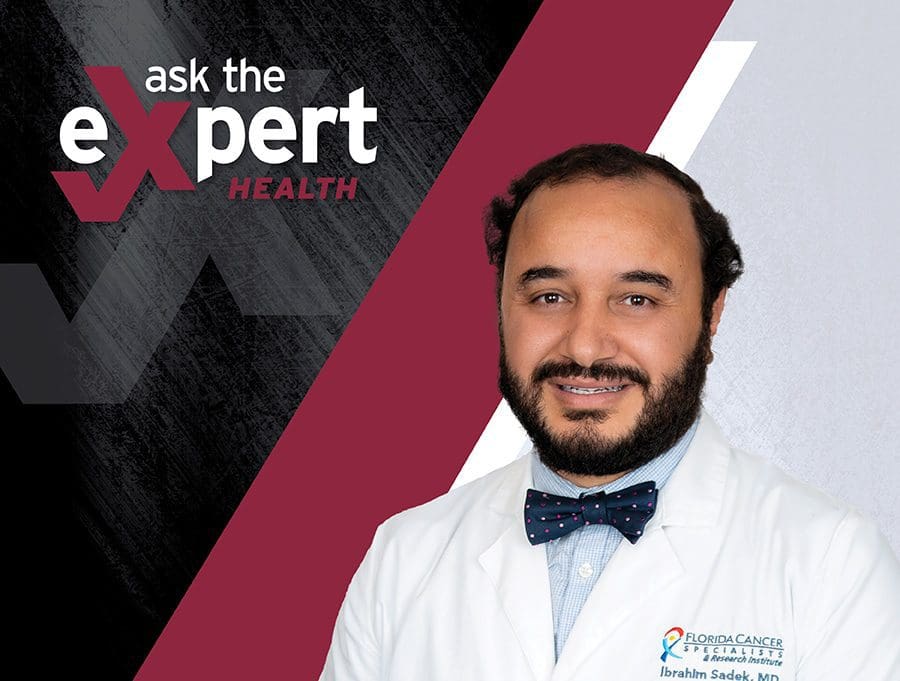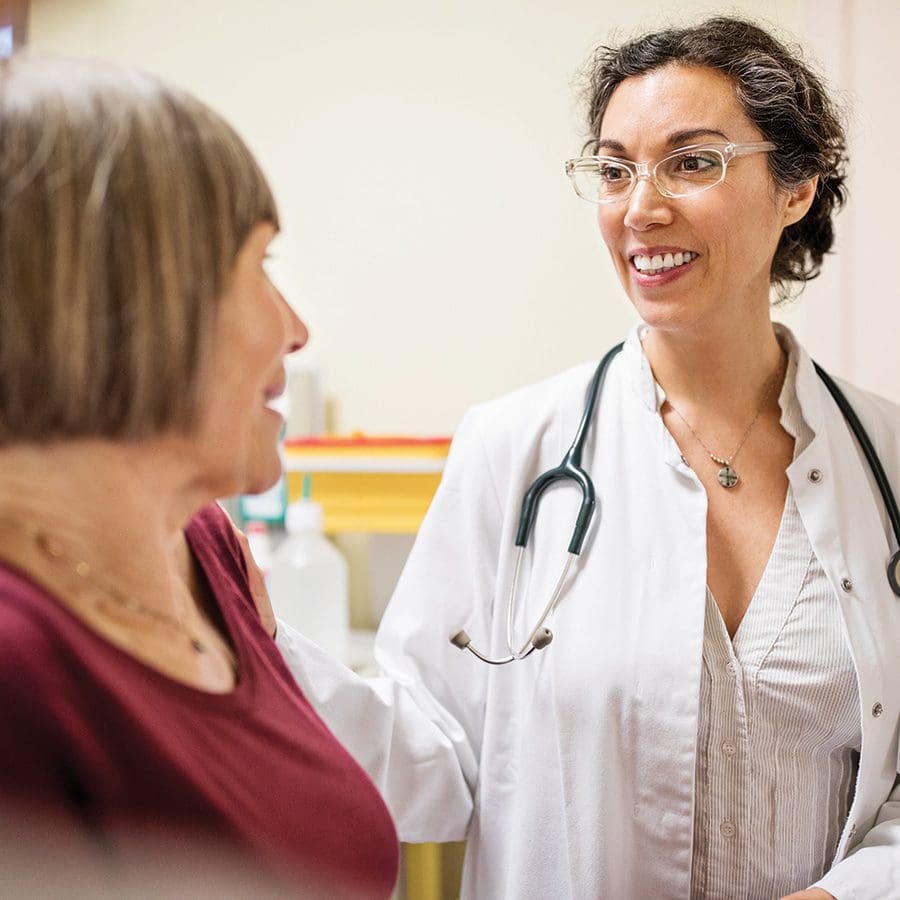
By Akers Editorial
Ask The Expert: Breakthroughs In Cancer Treatment

Ibrahim Sadek, MD, Medical Oncologist / Hematologist
Q: What can I do if I’m not getting better after a concussion?
A: Cancer starts when normal, healthy cells become changed or altered and begin to grow out of control. For years, traditional treatments have focused on killing cancer cells using chemotherapy and radiation.
While effective, these treatments can also destroy healthy blood cells and harm the body’s production of new cells.
Thanks to ongoing scientific research, we have a much greater understanding of the microenvironment of cancer and many more effective options to fight the disease.
Information gained through advanced genetic testing allows us to see an individual’s complete genetic panel, providing a clearer understanding of their specific genetic mutations. Oncologists can then seek out a therapy that targets that exact mutation based on the patient’s unique molecular profile. This truly personalized treatment planning leads to more positive outcomes— increasing cure rates and extending lives.
One of the most promising and successful new treatments for cancer is immunotherapy, which works to stimulate or boost the body’s own immune system to find, target and fight many forms of the disease, even at advanced stages.
We can now strengthen the immune system to work 24/7, creating equilibrium between the body and the cancer, so it cannot spread or grow. Immunotherapies actually can cure or stabilize the disease.

Q: How do immunotherapies work and what are the advantages?
Immunotherapies stimulate the body’s immune system or boost its natural defenses by introducing proteins developed in a lab into the body to work harder to fight cancer. Therapies can be injected directly into a vein or body cavity, swallowed in pill or capsule form or applied topically through a cream that is rubbed onto the skin.
There is a growing list of immunotherapies. For example, CarT-cell therapy alters a type of white blood cell in a laboratory and placed back into the body so that they are better able to find and destroy cancer cells. Monoclonal antibodies are proteins created in a lab and designed to bind to specific targets on cancer cells.
They are then marked so that they will be better seen and destroyed by the immune system.
The frequency and duration of immunotherapy is based on several factors, including the type and stage of the cancer. Some types of immunotherapies are administered in cycles, giving the body time to recover or respond by producing new, healthy cells.
Immunotherapy may be used alone or in combination with chemotherapy, radiation and/or surgery. While side effects can occur, a key difference is that they are often less severe than those encountered with conventional therapies. Therefore, the body can tolerate treatment better and for a longer period of time without stopping and yield a quicker response. These therapies actually result in better control and can greatly minimize the chance of cancer recurring.
Even though immunotherapy can prevent or slow cancer growth, cancer cells do have ways to avoid destruction by the immune system. Researchers are focusing on increasing our understanding of how the immune system works and new treatments are being discovered at a very fast pace. Hundreds of new immunotherapy drugs are being tested in clinical trials. Other areas of focus include finding ways to overcome the body’s resistance to immunotherapy, finding ways to predict which patients will respond best to this form of treatment and ways to reduce the side effects of treatment.

Q: What hopeful message can you share with those newly diagnosed with cancer?
I always tell my patients to never give up; there is always something we can do for cancer. Don’t assume there is no hope. It is important to talk with a medical oncologist and learn about all your options before you decide what to do.
Increasingly, we are curing cancer or modifying its course to avoid complications. Patients are living longer with cancer more like a chronic disease and enjoying a better quality of life. Even patients with Stage 4 and metastatic cancers are in or beyond remission and their cancers are gone for good.
Treatment is always getting better. We have access to the newest and most advanced modalities, and we are here to go through every step of the journey with you. I am excited each day to wake up and see how I can positively impact someone’s life.
IBRAHIM SADEK, MD is a Board-Certified Medical Oncologist and Hematologist who provides care for all forms of cancer and blood disorders at the Florida Cancer Specialists & Research Institute’s Villages Cancer Center and Brownwood locations.






























